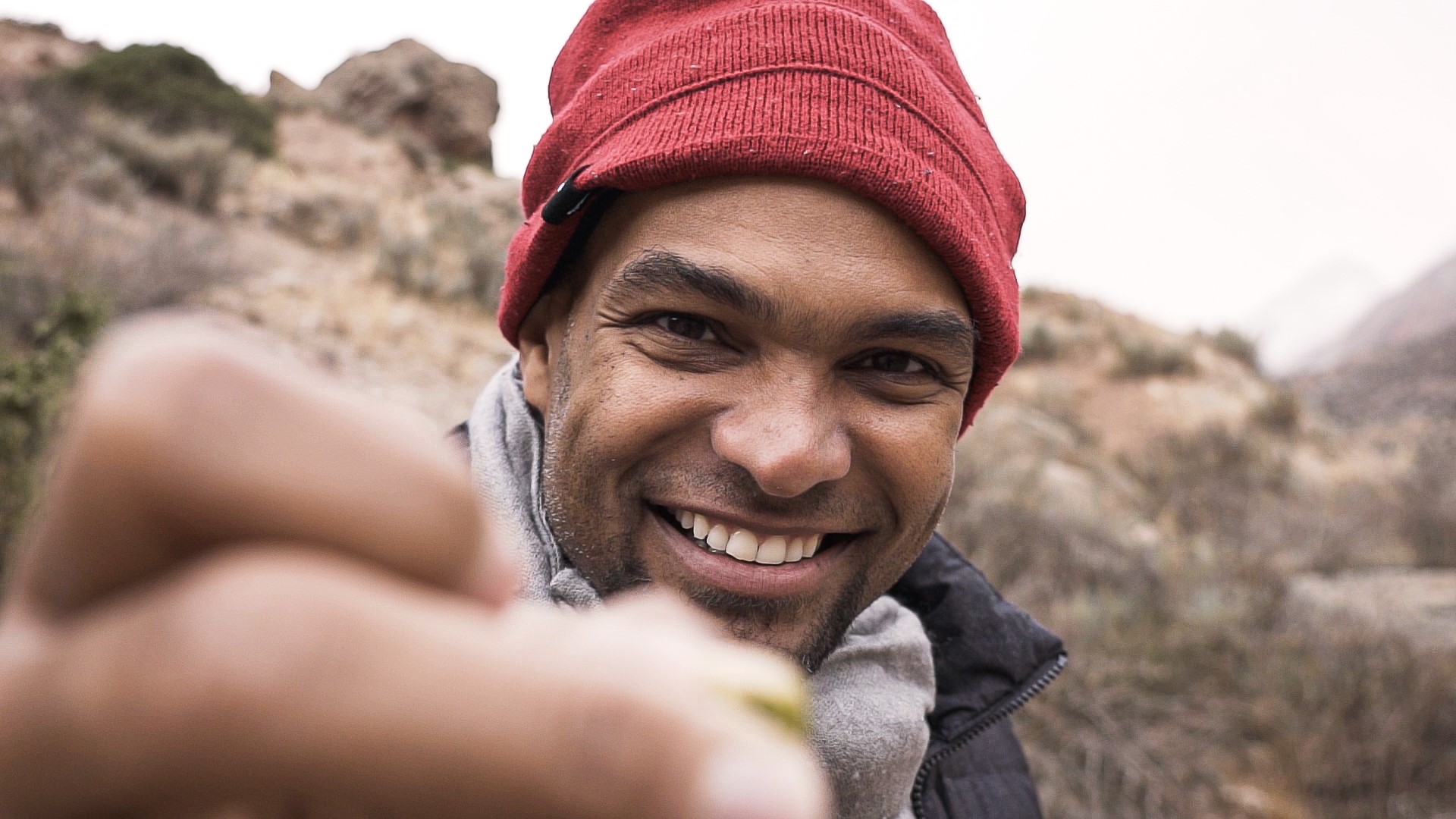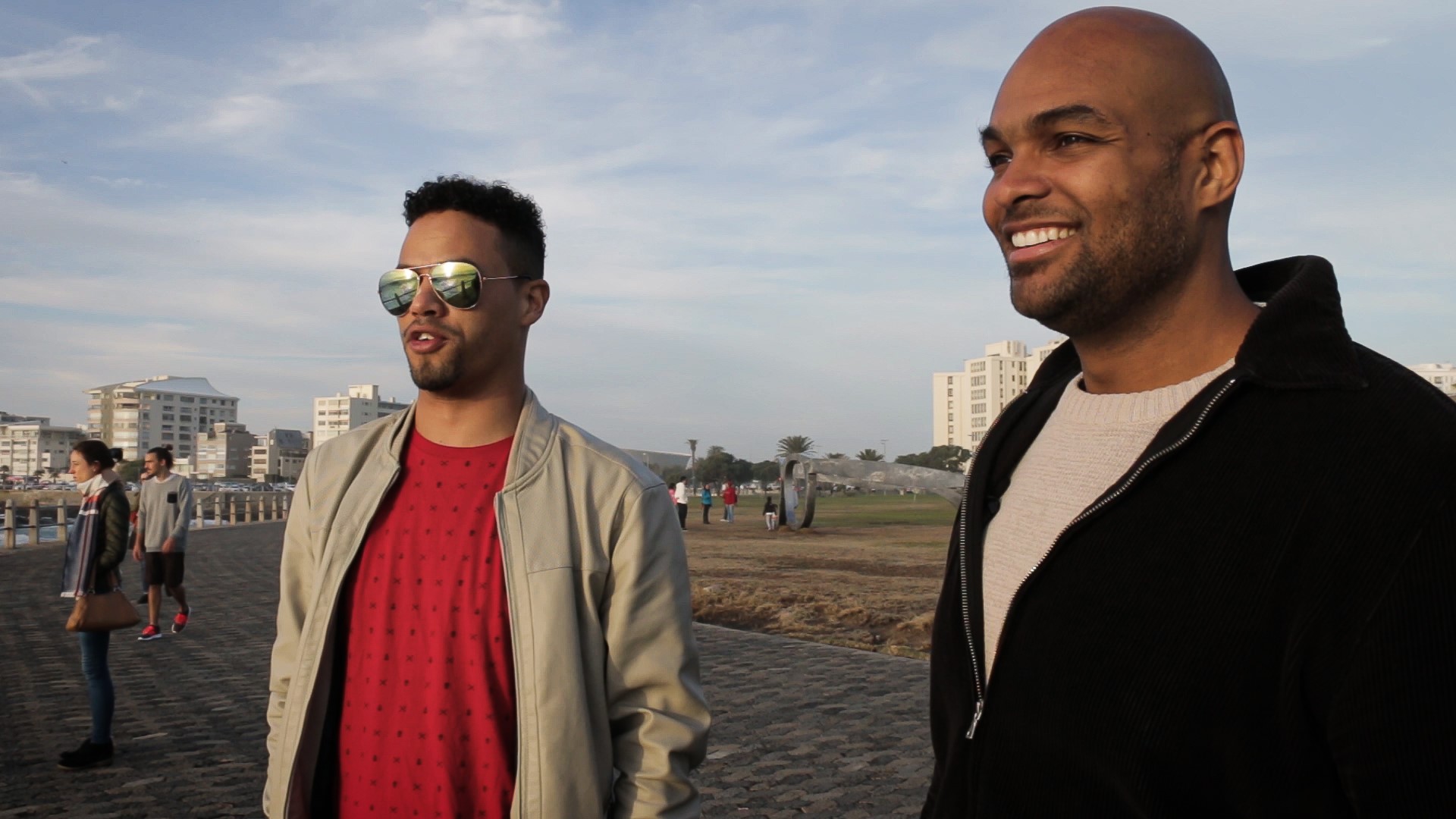“I’m a sustainability failure.”
Ernest White II is reminiscing about a recent trip, during which he forgot to bring his metal water bottle with him. As a result, he ended up buying two single-use plastic bottles at the airport and ordering more through a delivery service once he got to his hotel room — which, in turn, resulted in a driver going to the supermarket, purchasing more plastic, and using more gasoline.
“Just by forgetting my water bottle, all of a sudden, I’m creating more trash, spending more money, and polluting more,” he says. “Every little thing we do matters. Every little thing we can change matters. So don’t forget your water bottles.”
As a longtime travel journalist and host of PBS Passport’s travel series Fly Brother, Ernest White has been around the globe numerous times. He’s visited 71 countries and shared his experiences in untouched exotic destinations and bustling urban centers. His goal: connecting people and places, building friendships, and showing the audience that the whole world is one tribe.
I recently sat down with White in New York City to talk about the growing awareness of sustainability in the travel industry, and how we can do our part to transform travel’s impact on nature and people. 
Green Living: What does the term “sustainable travel” mean to you?
Ernest White II: I’ve had so many different experiences over and over during which I’ve seen that people just want to be cared for. Well, so does our environment. Some of the beautiful places we film at are endangered simply because of climate change — because we’re not taking care of our environment, and we’re not taking care of each other. Sustainable travel to me means traveling with a greater awareness of the environmental and societal impacts that we made on the world. And it’s not just ecological or environmental sustainability, although that’s a big part of it. It’s also societal sustainability. Are we making choices that do the least damage and the greatest good for all beings on the planet? It’s not hard to do, but the messaging sometimes gets mixed up.
Green Living: You mention the societal impacts. What does that mean?
White: The United Nations came up with a list of 17 sustainable development goals to be met by 2030. The first five are about people. So even though you may hear that carbon offset is a way to be sustainable, or planting trees is a way to be sustainable — or even recycling, which we’ve been doing since the ’90s, is a part of it — it’s the people that we have to start with. And that’s an important thing to remember when we’re looking at sustainability. How are we treating people when we travel? How are we treating each other when we travel? That’s it.

Green Living: What countries that you’ve visited are leading the way in sustainability?
White: You’ll find more awareness about sustainability in Northern Europe, Scandinavia, and parts of Western Europe. You’ll also find an infrastructure that makes it easy to do so — taking the train, taking public transportation, walking. Taking public transportation is always more sustainable because you’ve got less fuel usage and emissions. Taking the train is always more sustainable than flying to a location. Rwanda is doing a great job of sustainability. They’ve banned single-use plastics. Everybody is paying attention to not littering and proper waste disposal. In Costa Rica, there are more wildlife conservation areas and protected areas than in any other country.
Green Living: What can we as travelers do?
White: Travel is magical. It’s transformative. But the fact that we can do it at speeds that we’ve never seen before — you can change planes in Dubai or Istanbul and be in Perth or Paris or Portland in two flights — we’re able to get around more, so we have to be more responsible as we do it. There are locations that are seeing so many people that the infrastructure is not doing well. Venice has limited the number of cruise ships that can enter. I would love to go to Antarctica, but I’m also like, do I really need to go to Antarctica? Is my presence there more harmful than helpful? Do I really need to go to Machu Picchu if my being there is going to create more problems? I’m not saying don’t go to Antarctica or Machu Picchu, I’m just saying to think about how you’re going.

Green Living: What are some simple steps travelers can do to help the environment?
White: First of all, take your reusable water bottle with you. I know it’s basic, but honestly, it does start with us. So, reduce your single-use plastics. Buy recycled products. H&M and Patagonia make recycled clothing. You can also find companies that are investing in renewable materials, and that’s also important because it means less pollution, it reduces plastic waste, and it saves money. When planning a trip, try to find green lodging.
Green Living: So much of our travel planning is done on the web these days. Do you have any sites you recommend?
White: There also are a lot of websites that can help. Bookdifferent.com takes the guesswork out of sustainable travel planning. They let you know which hotels are registered with certain organizations or have seals of approval, so you know if they’re caring about their employees or about the environment. There’s also alight.travel, which is a booking platform that allows you to find sustainable places, from eco-lodges to resorts and everything in between. Localpurse.com connects you with local businesses and lets you purchase things from them. You’re making sure that money is going into the local community, which is exactly what sustainability is about in terms of that societal impact. Three more resources are impacttravelalliance.org, sustainabletravel.org, and the United Nations with their sustainable development goals at sdgs.un.org.
Green Living: How do you travel when you’re shooting your show?
White: We’re not fully sustainable by any means, but we’re trying. We have a small camera crew of four people, so we try to minimize the number of people who travel with us. We also recycle our equipment, and we hire locally when possible. At this stage, I’m committed to being more sustainable. We are all learning. We’re all trying to do better and better every day. I feel like I got the societal sustainability down because that is what I do. But some of us who are very societally sustainable are not environmentally sustainable. So we all have a lot to learn, and I’m here to learn along with you. It’s about progress, not perfection.
Keep up with our other travel articles here!






